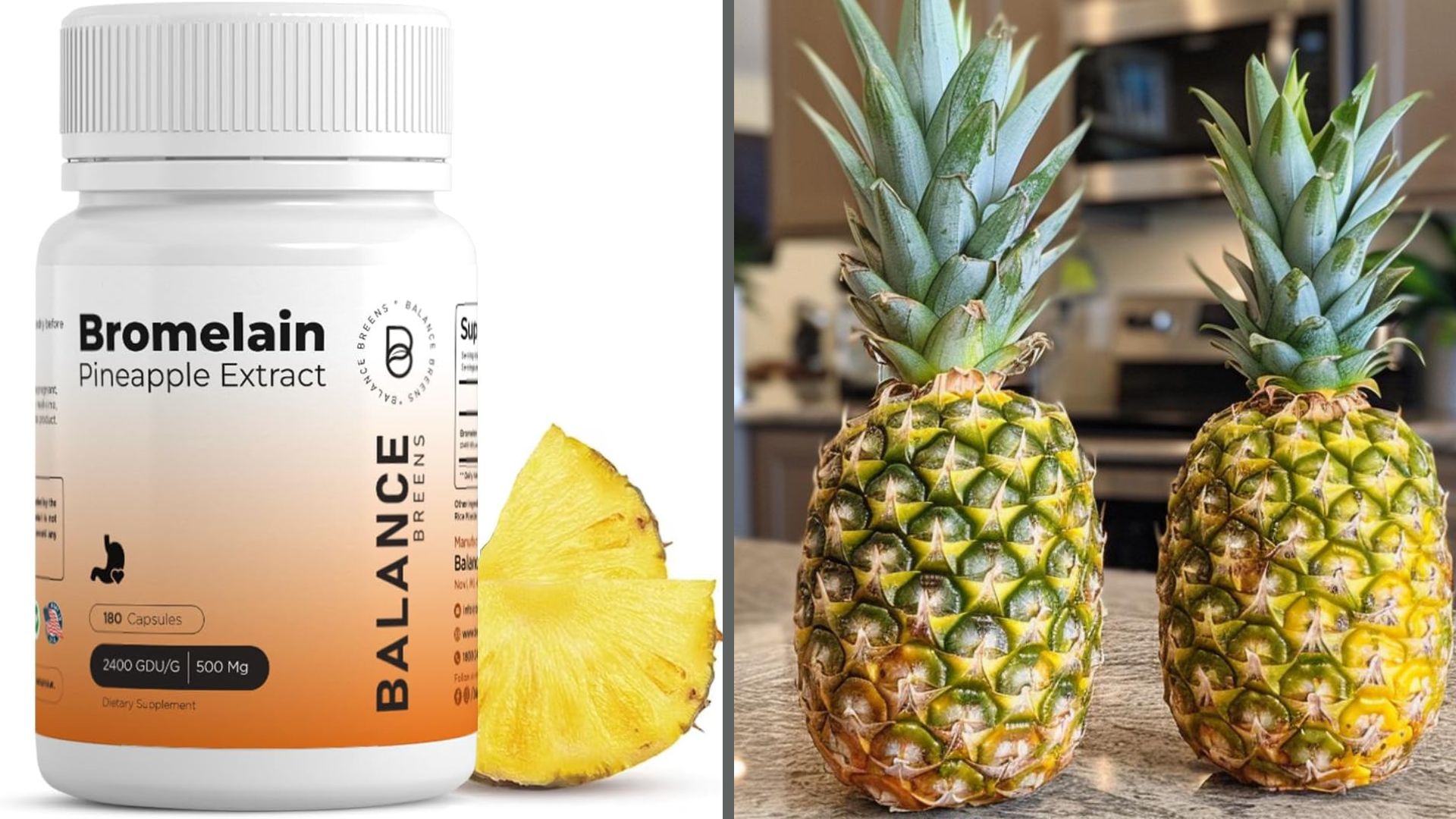Can pineapple help or hurt your acid reflux?
You may have heard conflicting information about this tropical fruit and its effects on digestive health.
Dealing with the discomfort of acid reflux can be frustrating, especially when trying to debunk the many food myths out there.
But what if we told you that some commonly held beliefs about pineapple and acid reflux might not be entirely accurate?
In this blog post, we’ll separate fact from fiction and explore five surprising truths about how pineapple interacts with your digestive system.
Get ready to challenge what you thought you knew and discover how this sweet and tangy fruit could play a role in managing your acid reflux symptoms.
Myth 1. Pineapple Always Worsens Acid Reflux
You may have heard that pineapple is a strict no-no for anyone suffering from acid reflux.
This common belief comes from the idea that the fruit’s acidity can aggravate symptoms like heartburn and indigestion.
Many people assume that consuming pineapple will lead to discomfort and pain.
Fact: Pineapple’s Impact Varies Among Individuals
While it’s true that pineapple has acidic properties, its effect on acid reflux is not universal.
Some people may indeed experience worsening symptoms after eating pineapple. On the other hand, others might find that it has little to no impact on their digestive health.
The relationship between pineapple and acid reflux is highly individual.
Myth 2. Pineapple Has No Digestive Benefits
Some people believe that pineapple, being an acidic fruit, cannot offer any benefits for digestion.
They may think consuming pineapple will only lead to discomfort or worsen existing digestive issues.
This misconception often prevents individuals from considering pineapple as a potential aid for their gut health.
Fact: Pineapple Contains Bromelain Enzyme
Contrary to the myth, pineapple contains a valuable enzyme called bromelain.
This enzyme has gained attention for its potential to support digestive functions and reduce inflammation in the gut.
By including pineapple in your diet, you may be able to tap into the benefits of bromelain for your digestive health.
Myth 3. Bromelain Supplements Can Treat Acid Reflux
Many people believe that taking bromelain supplements is a fail-safe way to alleviate acid reflux symptoms.
This myth has gained attraction due to the enzyme’s well-known digestive properties and its potential to reduce inflammation in the gut.
Proponents often claim that bromelain supplements can provide relief from the discomfort and pain associated with acid reflux.
Fact: No Conclusive Scientific Evidence For Its Effectiveness
Despite the popularity of this belief, it’s important to note that there is currently a lack of scientific evidence to support the effectiveness of bromelain supplements in treating acid reflux.
While some studies have explored bromelain’s potential benefits for digestive health, the results have been mixed and inconclusive.
Myth 4. Acid Reflux Sufferers Should avoid it
There is a widespread belief that individuals with acid reflux should eliminate pineapple from their diets.
This myth is based on the idea that pineapple’s acidity will worsen symptoms like heartburn, chest pain, and indigestion.
As a result, many people with acid reflux automatically exclude pineapple without considering their tolerance.
Fact: Reactions to Pineapple Can Vary Among Individuals
However, it’s crucial to understand that not everyone with acid reflux reacts differently to pineapple.
While some people may experience worsening symptoms after consuming pineapple, others might find that it has little to no impact on their condition.
The reality is that the relationship between pineapple and acid reflux is highly individual.
Myth 5. All Forms of Pineapple Are Equally Acidic
Many assume that regardless of how pineapple is consumed or prepared, its acidity remains constant.
This misconception leads individuals with acid reflux to believe that all forms of pineapple will have the same impact on their symptoms.
As a result, they may avoid pineapple entirely without considering the variations in acidity.
Fact: Its Acidity Can Vary Based on Storage and Processing
Pineapple acidity can fluctuate significantly depending on several factors, such as its storage and processing.
Understanding these variations is crucial for individuals with acid reflux who want to make informed decisions about including pineapple in their diet.
Additional Considerations about Pineapples

While exploring the myths and facts surrounding pineapple and acid reflux, it’s essential to take a step back and consider the bigger picture.
We can develop a more balanced perspective that acknowledges potential benefits and drawbacks.
This section aims to provide a comprehensive view of pineapple’s nutritional value and possible risks.
Pineapple: A Nutrient-Dense Fruit

Beyond its effects on acid reflux, pineapple is a fruit packed with valuable nutrients. One of its most notable attributes is its high vitamin C content.
This powerful antioxidant plays a crucial role in supporting immune function, promoting healthy skin, and protecting cells from damage caused by free radicals.
Additionally, pineapple contains manganese, a mineral that contributes to strong bones and proper metabolism.
It is also rich in dietary fiber, aiding digestive health and regular bowel movements.
Bromelain: A Double-Edged Sword

Pineapple is also known for containing bromelain. It is a unique enzyme with both potential benefits and risks.
On the positive side, bromelain has been studied for its ability to help break down proteins.
Some individuals will find it helpful in easing digestion. Moreover, research suggests that bromelain possesses anti-inflammatory properties, which is advantageous for those with inflammatory conditions.
However, it’s important to note that some people may experience allergic reactions or sensitivities to bromelain. It could result in digestive discomfort or mouth irritation.
Conclusion
Understanding the complex relationship between pineapple and acid reflux is crucial for making informed dietary choices.
Individual reactions to pineapple vary greatly. Its effects on acid reflux are not as clear-cut as some believe.
While pineapple’s acidity and bromelain content may trigger symptoms in some people, others may find relief or experience no significant impact.
Ultimately, the key is to listen to your body and work with your healthcare provider to determine what works best for you.
Remember, pineapple is a nutrient-dense fruit with potential health benefits, so don’t be afraid to experiment cautiously.
Frequently Asked Questions
Do Pineapples Cause Acid Reflux?
Yes, pineapples can cause acid reflux due to their high acidity. The citric acid in pineapples may trigger symptoms in some people prone to acid reflux.
Is Pineapple Bad for Gastritis?
Yes, pineapple can be bad for gastritis. Its high acidity can irritate the inflamed stomach lining, worsening gastritis symptoms. It’s best to avoid pineapple during flare-ups.
Which Acid is Rich in Pineapple?
Citric acid is the primary acid found in pineapples. It contributes to the fruit’s tart flavor and can cause acid reflux or irritate the stomach lining.
Does Pineapple Juice Have High Acidity?
Yes, pineapple juice has high acidity due to its citric acid content. The acidity level of pineapple juice is similar to that of the whole fruit.
How to Reduce Acidity in Pineapple?
To reduce acidity in pineapple, you can:
1. Balance it with low-acid foods like bananas or coconut milk.
2. Consume smaller portions to minimize acid intake.
3. Opt for less ripe pineapples, which have lower acidity.






